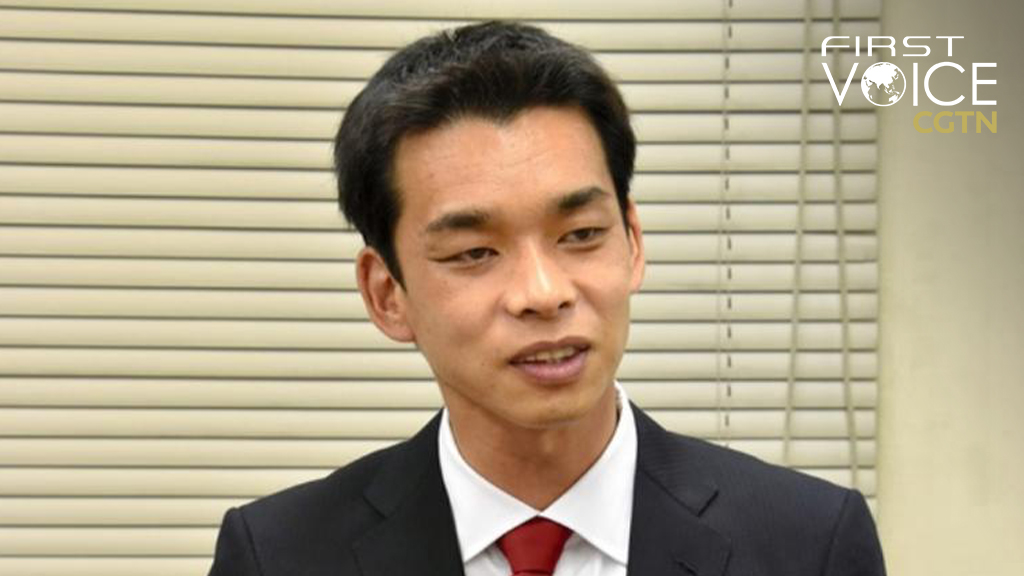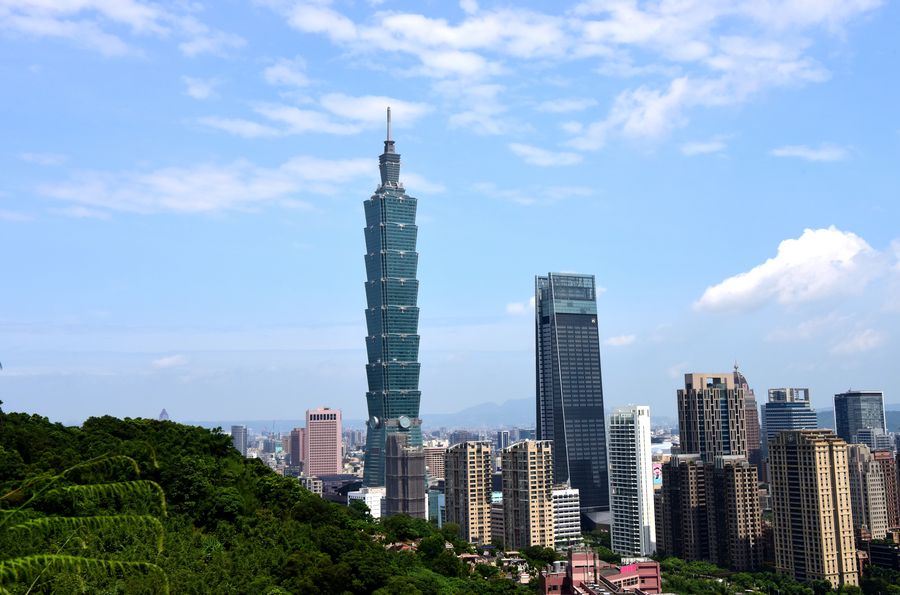
Japanese State Minister of Defense Toshiro Ino. /VCG
Japanese State Minister of Defense Toshiro Ino. /VCG
Editor's note: CGTN's First Voice provides instant commentary on breaking stories. The column clarifies emerging issues and better defines the news agenda, offering a Chinese perspective on the latest global events.
Japanese State Minister of Defense, Toshiro Ino, pledged in an interview with the Daily Telegraph that his country would very possibly "provide some kind of support" to China's Taiwan region in case of an "invasion" from the Chinese mainland.
It is not the first time that high-level Japanese officials have made the provocative remarks on the Taiwan question. In 2021, late Japanese prime minister Shinzo Abe forcefully argued, "A Taiwan emergency is a Japanese emergency, and therefore an emergency for the Japan-U.S. alliance."
Shouting so-called "support" to Taiwan, Japan is taking advantage of Taiwan pro-independence forces to advance its selfish agendas – at the cost of local people. For decades, the Japanese government has been attempting to loosen its postwar military restraints and accelerate its move toward a "normal state," which many Japanese policymakers believed as a prerequisite for the country to be the hegemon in East Asia.
By hyping China "threats," the Japanese government is seeking a "justified" cause to revise the constitution and exercise the right of collective self-defense. Playing the China card has also repeatedly turned out to be effective in boosting funds for Japan's military. Pledging "support" to China's Taiwan, Japan attempts to secure backup from the Western bloc, especially the U.S., for its goal of breaking free from postwar pacifism.
But Ino's "some kind of support" will only push the Taiwan Straits into a hazardous zone. China has reiterated that the Taiwan question is a red line that cannot be crossed. But despite China's repeated warnings not to play with fire, Japan insists on dancing to the U.S. tune and challenging China's bottom line. This will only fuel regional tensions and lead the cross-Straits situation into a downward spiral. And local people will pay the price for Japan's political goals.

Taipei 101 skyscraper in Taipei, southeast China's Taiwan. /Xinhua
Taipei 101 skyscraper in Taipei, southeast China's Taiwan. /Xinhua
The Japanese government, in recent years, has become increasingly confrontational against Beijing. As Washington is gradually diverting its strategic attention to the Indo-Pacific region, some Japanese officials are bursting with impatience to act as a pioneer for the U.S. Indo-Pacific strategy and have been straining every nerve to manifest their loyalty to Washington.
Containing China's rise is the first step. Apart from the Taiwan question, Japan has repeatedly voiced "concerns" about the so-called human rights situation in Xinjiang and Hong Kong, and wantonly interfered into China's internal affairs in collusion with the United States.
Isolating China on the global arena is the next step. Actively touting the concept of a "free and open" Indo-Pacific, Japan – although it is not a direct participant in any South China Sea disputes – has been enthusiastic in driving a wedge between China and regional countries and wooing the latter into Washington's anti-Beijing club. According to the Yomiuri Shimbun, Japan is considering providing military aid including radar to the Philippines so as to monitor Chinese activities in the region. High-level officials from the U.S., Japan, and the Philippines agreed in their Tokyo meeting in June to produce a formal document coordinating security strategies by year-end, aiming to bolster deterrence against China.
To further consolidate its alliance with the U.S., Japan has been playing an active role in, and striving to institutionalize, the U.S.-led Quadrilateral Security Dialogue (Quad). Tokyo was the second country after Washington to hold the Quad summit in 2022 with an attempt to encircle China. Claiming to maintain a "free and open" Indo-Pacific region, Quad is in essence a Western club with the goal of inciting various forces to oppose China.
By showing loyalty and acting as a puppet to the U.S., the Japanese government is thinking to secure Washington's approval for its loosened military restraints and the resumption of the right of collective self-defense. While the U.S. needs Japan to advance its Indo-Pacific strategy, the Japanese government needs U.S. support to win over China and secure its hegemony in East Asia. Against this backdrop, Washington and Tokyo have been colluding for respective political goals.
Local people are the last thing Japan and the U.S. care about. While Ino enthusiastically shouts peace and stability, it is Japan's "some kind of support" that is stirring troubles and pushing the region into a perilous zone.
(If you want to contribute and have specific expertise, please contact us at opinions@cgtn.com. Follow @thouse_opinions on Twitter to discover the latest commentaries in the CGTN Opinion Section.)